
Saratoga Trunk
¥88.56
The basis for the classic film starring Gary Cooper and Ingrid Bergman, Saratoga Trunk unfolds the story of Clio Dulaine, an ambitious Creole beauty who more than meets her match in Clint Maroon, a handsome Texan with a head for business -- and an eye for beautiful young women. Together they do battle with Southern gentry and Eastern society, but in their obsession to acquire all they've ever wanted, they fail to realize they already have all they'll ever need -- each other.
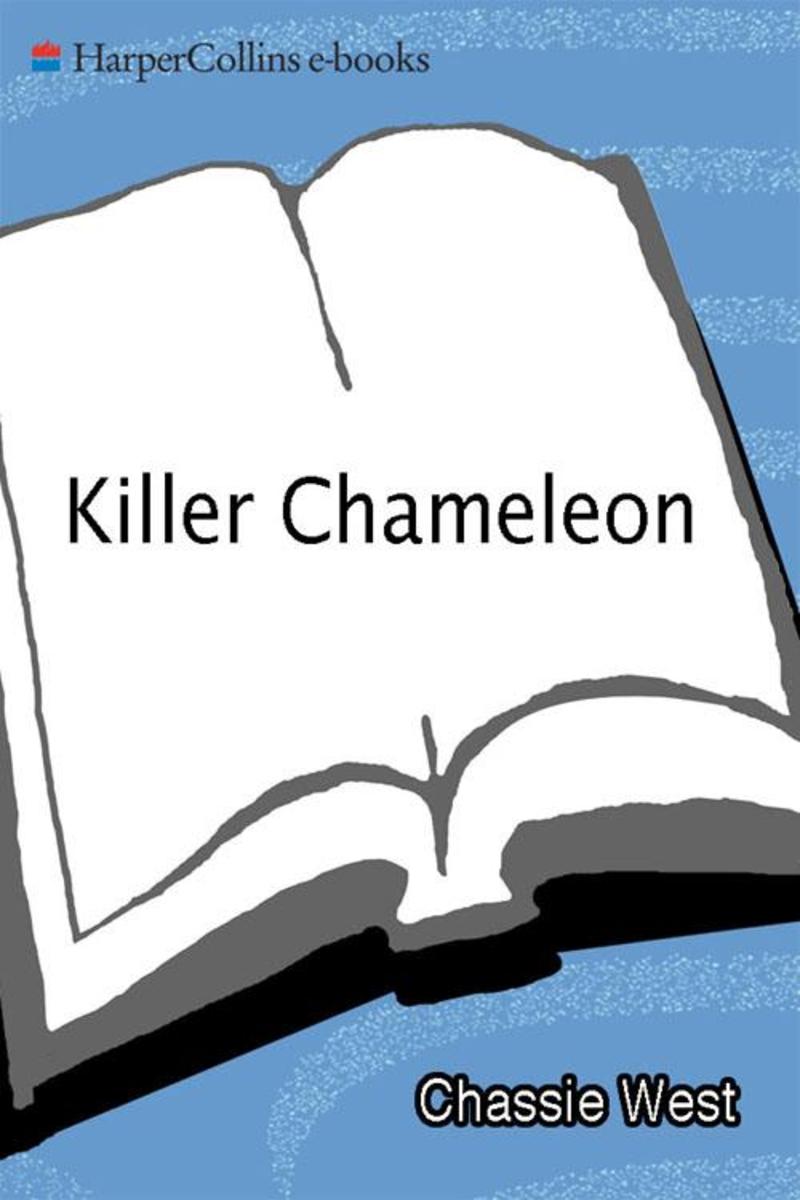
Killer Chameleon
¥49.57
Former D.C. cop Leigh Ann Warren is starting a new job and looking forward to a blissful wedded life. But someone is not willing to let her escape so easily -- a lethal adversary with a grudge who's determined to make Leigh Ann pay ... and keep paying.What begins as a series of petty harassments quickly escalates into more serious crimes, as a stranger driven by hate and unburdened by conscience steals Leigh Ann's identity to threaten her extended family. And when her invisible enemy graduates to murder, Leigh Ann realizes that there's only one way to take back her life and stop the terror: She must beat a killer at her own twisted game.
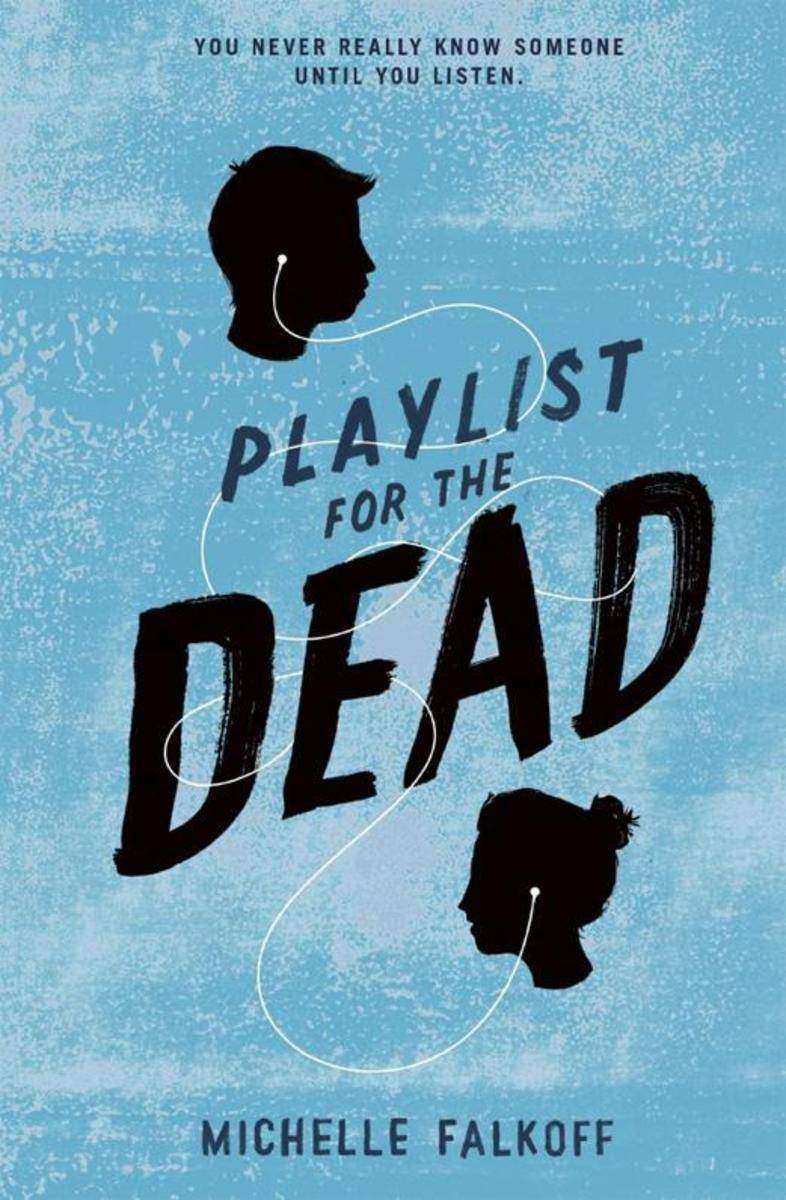
Playlist for the Dead
¥55.93
Part mystery, part love story, and part coming-of-age tale in the vein of The Perks of Being a Wallflower and The Spectacular Now.There was a party. There was a fight. The next morning, Sam's best friend, Hayden, was dead. And all he left Sam was a playlist of songs and a suicide note: For Sam—listen and you'll understand. To figure out what happened, Sam has to rely on the playlist and his own memory. But the more he listens, the more he realizes that his memory isn't as reliable as he thought. And it might only be by taking out his earbuds and opening his eyes to the people around him that he'll finally be able to piece together his best friend's story. And maybe have a chance to change his own.Playlist for the Dead is an honest and gut-wrenching first novel about loss, rage, what it feels like to outgrow a friendship that's always defined you—and the struggle to redefine yourself. But above all, it's about finding hope when hope seems like the hardest thing to find.
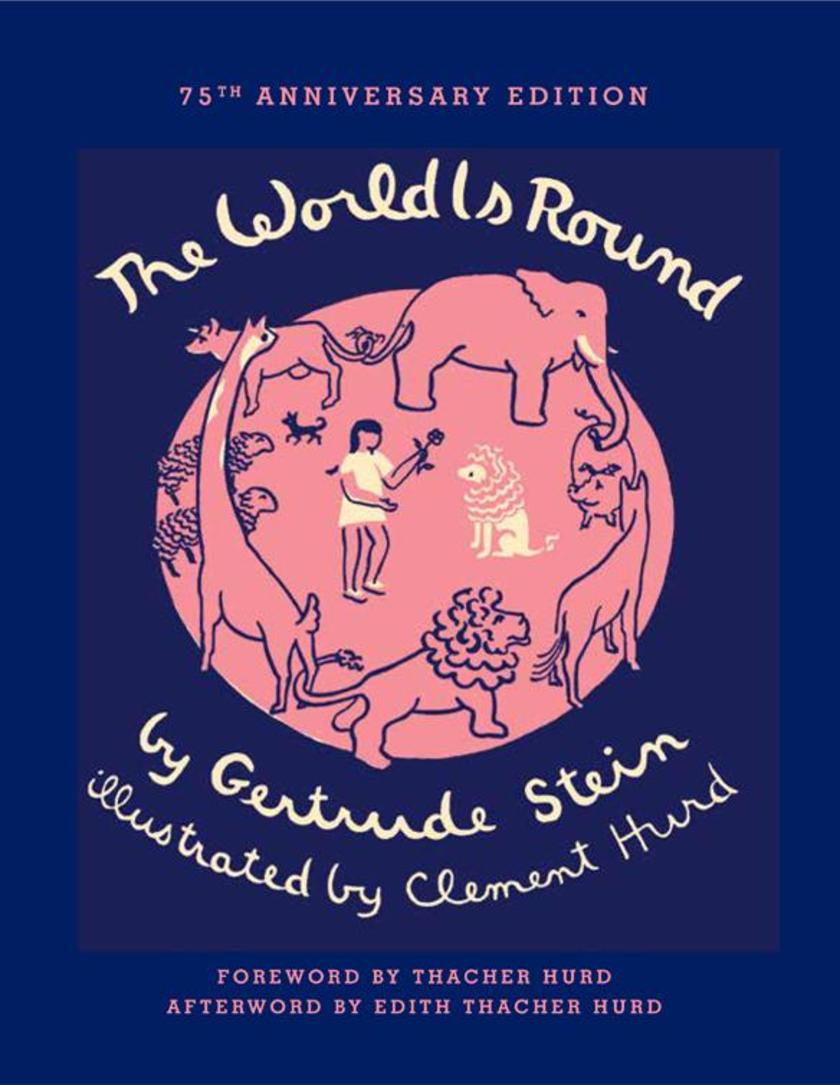
The World Is Round
¥110.71
Published to commemorate its 75th anniversary, The World Is Round brings back into print the classic story created by Gertrude Stein and Clement Hurd.Written in her unique prose style, Gertrude Stein's The World Is Round chronicles the adventures of a young girl named Rose—a whimsical tale that delights in wordplay and sound while exploring the ideas of personal identity and individuality. This stunning volume replicates the original 1939 edition to a T, including all of Clement Hurd's original blue-and-white art printed on the rose-pink paper that Stein insisted upon. Also featured here are two essays that provide an inside view to the making of the book. The first, a foreword by Clement Hurd's son, author and illustrator Thacher Hurd, includes previously unpublished photographs and sheds light on a creative family life in Vermont, where his father and mother, author Edith Thacher Hurd, often collaborated on children's books. The second essay, an afterword by Edith Thacher Hurd, takes readers behind the scenes of the making of The World Is Round, including the numerous letters exchanged between Hurd and Stein as well as images of Stein with the real-life Rose and her white poodle, Love.

Darkmouth #1: The Legends Begin
¥44.85
Discover a new middle grade series full of madcap adventure, mythological creatures, humor, and heart. The world's unlikeliest hero is also its only hope in this spirited tween fantasy debut, perfect for fans of How to Train Your Dragon and The Hero's Guide to Saving Your Kingdom.For generations, Finn's family has protected Darkmouth from the fierce magical creatures known as Legends. Now the Legends are plotting a major attack, and it's Finn's turn to defend his hometown. So it's too bad he's the worst Legend Hunter in history.

Sheltering Rain
¥90.77
From the New York Times bestselling author of Me Before You comes the touching, unforgettable story of three generations of Irish women faced with the fundamental truths of love, duty, and the unbreakable bond that unites mothers and daughtersEstranged from her mother since she ran away from her rural Irish home as a young woman, Kate swore an oath that she'd always be a friend to her daughter, Sabine. But history has a way of repeating itself, and Kate now faces an ever-widening chasm between herself and her daughter. With Sabine about to make her own journey to Ireland to see her grandmother, Kate is left wondering how they ever made it here, and what she can do to close the gap between them.For Joy, seeing her granddaughter is a dream come true. After the painful separation from Kate, she's looking forward to having time with Sabine. Yet almost as soon as the young woman arrives, the lack of common ground between them deflates her enthusiasm. And when Sabine's impetuous, inquisitive nature forces Joy to face long-buried secrets from her past, she realizes that perhaps it's time to finally heal old wounds.

Slim Down Now
¥88.56
Get ready to put aside all your calorie counting, appetite suppressing, no-pain-no-gain diets. Cynthia Sass, author of S.A.S.S. Yourself Slim and coauthor of Flat Belly Diet!, introduces the surprising superfood that is the secret to weight loss. Called “pulses,” this unique class of protein-rich carbs (including filling and satisfying lentils, beans, and chickpeas) actually boosts calorie- and fat-burning, whittles away belly fat, prevents snack attacks, and creates long-lasting energy. Plus, they’re gluten free, readily available, and affordable!In Slim Down Now, Cynthia Sass reveals the scientifi cally demonstrated power of pulses, which she has incorporated into a dynamic, fl exible weight-loss plan that focuses on how these supershredders can ultimately transform your body.The 30-day challenge asks you to put aside your usual weight-loss methods and adopt an entirely new approach to food, health, and weight management. You start with the four-day Rapid Pulse, where you make one simple recipe (a pudding!) daily for four days . . . but in those four days, you’ll lose up to 8 pounds! Then, you move on to the Daily Pulse, a 26-day program where you include one serving of pulse each day. Sass’s plan includes a simple DIY meal-building strategy you’ll love, as well as delicious, deprivation-free recipes, including a savory veggie quiche, garlicky shrimp scampi, and even oven-roasted potatoes. In fact, there is an entire chapter on desserts, including mouth-watering brownie bites and mini pumpkin spice muffi ns. The meal plan includes grocery lists and restaurant options and can be followed by gluten-free eaters, vegans, vegetarians, and omnivores alike.?In addition to this new approach to eating, Sass reveals that less exercise rather than more can actually be the key to successful weight loss. Forget feeling pressure to spend hours on an elliptical or at exhausting boot camp classes. With this program, exercise becomes a more organic part of your day, rather than that nagging item on your to-do list. Bonus: you’ll also learn a simple five minute technique that will boost your mood and overall happiness.?Sound too good to be trueWe promise it’s not. Get started today, and see the pounds melt away.
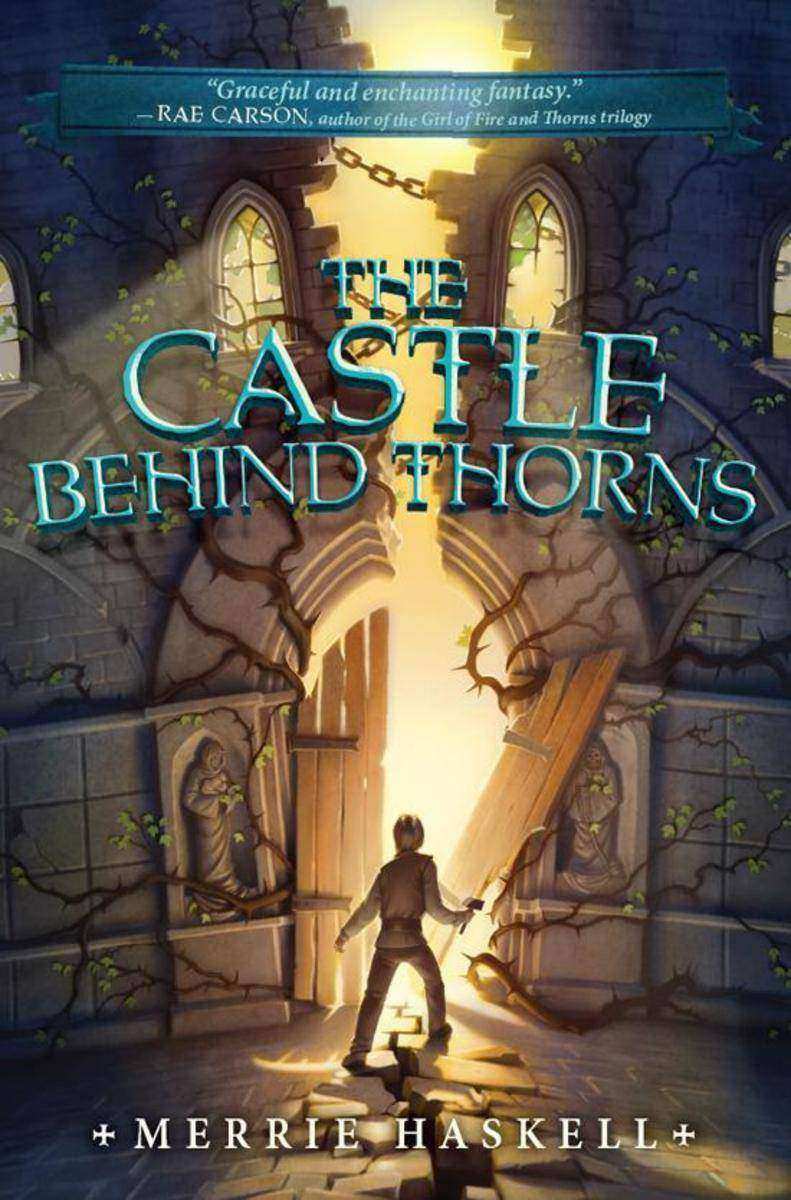
The Castle Behind Thorns
¥39.24
This magical adventure set in an enchanted castle surrounded by thorns tells a tale of the power of memory and story, forgiveness and strength, and the true gifts of craft and imagination. By the acclaimed author of?The Princess Curse?and?Handbook for Dragon Slayers, this original fantasy is perfect for fans of Gail Carson Levine, Karen Cushman, and Shannon Hale.When blacksmith apprentice Sand wakes up in a ruined castle, he has no idea how he got there, but the thorny brambles that surround the walls prevent him from leaving. As he begins to fix up the castle in order to survive, everything he touches somehow works better than it should. Then, as he continues to explore, Sand discovers the castle’s secrets, including its long lost heir, Perrotte. Together they must fully repair the broken castle if they ever want to leave.
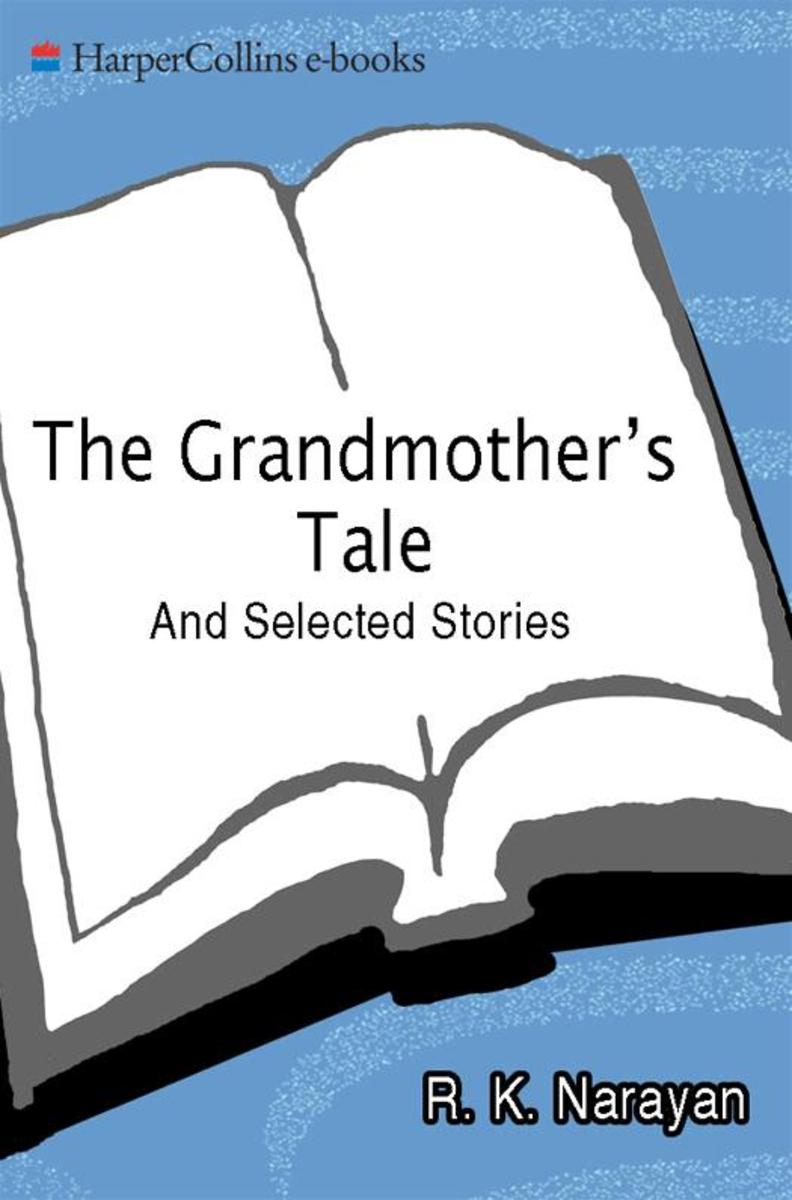
Grandmother's Tale And Selected Stories
¥95.17
There is no better introduction to R.K. Narayan than this remarkable collection of stories celebrating work that spans five decades. Characters include a storyteller whose magical source of tales dries up, a love-stricken husband who is told by astrologers he must sleep with a prostitute to save his dying wife, a pampered child who discovers that his beloved uncle may be an impostor or even a murderer. Standing supreme amid this rich assortment of stories is the title novella. Told by the narrator's grandmother, the tale recounts the adventures of her mother, married at seven and then abandoned, who crosses the subcontinent to extract her husband from the hands of his new wife. Her courage is immense and her will implacable -- but once her mission is completed, her independence vanishes. Gentle irony, wryly drawn characters, and themes at once Indian and universal mark these humane stories, which firmly establish Narayan as one of the world's preeminant storytellers.

More about Paddington
¥33.63
Paddington Bear becomes a celebrity when he takes portraits of the Brown family with a very old camera. Thanks to the unique results, a local shop puts the photos on display. And that's just the first adventure this extraordinary bear finds himself in. From wallpapering to mystery-solving, Paddington does it all with the sense of wonder and playful charm that readers have come to love.First published in 1959, More about Paddington is the second novel by Michael Bond chronicling the adventures of this classic character. Paddington has warmed the hearts of generations of readers with his earnest good intentions and humorous misadventures. This brand-new paper-over-board edition of the classic novel contains the original text by Michael Bond and illustrations by Peggy Fortnum.
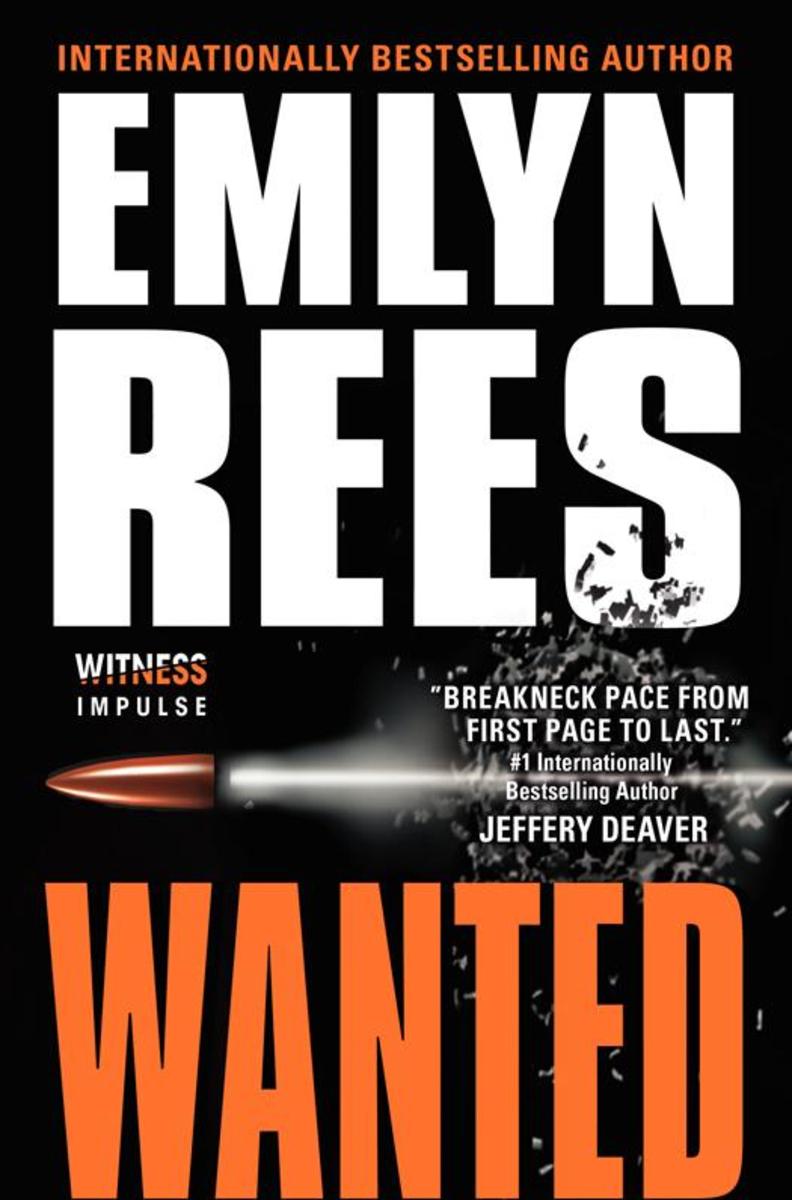
Wanted
¥67.32
Danny Shanklin is the world's most wanted man.Hunted by nine international intelligence agencies for a terrorist atrocity he did not commit, he's now trapped in a deadly race against the clock to protect his life, his family, and the world from the people responsible—people intent on true destruction. For though they framed him, these terrorists are really after a much bigger target: six lethal smallpox formulations, any one of which could trigger a global pandemic, leaving only one in three people alive.With the help of a Ukrainian mercenary and a ruthless female assassin, Danny soon finds himself forced into the roles of both predator and prey—as he tries desperately to win the fight of his life.

The Other Joseph
¥146.11
“A poignant and sly magic trick of a book.”—San Francisco ChronicleHaunted by the disappearance of his older brother in the first Gulf War, the tragic deaths of his parents, and a lingering felony conviction, for almost a decade Roy Joseph has worked on oil rigs off the coast of Louisiana and lived in lonesome exile. Then, on the cusp of his thirtieth birthday, Roy is contacted by a teenager from California claiming to be his lost brother’s biological daughter. Yearning for the prospect of family, Roy embarks on a journey across America, visiting childhood haunts in the South to confront his troubled past, and making a stop in Nevada to call on a retired Navy SEAL who may hold the answer to his brother’s fate. Roy’s ultimate destination is San Francisco, where his potential long-lost niece awaits. The Other Joseph is a powerful, spellbinding tale of a man nearly defeated by life who is given one last chance at redemption—one last shot to find meaning and alter the course of his solitary existence.“Big, tough, and ravishing, a ghost story in the voice of a lost brother, an elegy with the ache and grace of deeply lived life in it.”—Lauren Groff, author of Fates and Furies and Arcadia

Traitor
¥65.65
The Elizabethan Bond is back . . .Under the threat of a second Spanish Armada, John Shakespeare is sent to Lancashire to guard over England's secret weapon and its inventor, the maverick magician Dr. Dee.But nothing is so simple when the country is a hotbed of secret loyalties and civil unrest. During his mission, Shakespeare stumbles upon Catholic priests in hiding, a mysterious Bohemian seductress, and—of course—murder.Between facing off with a nefarious witch hunter and attending one of the first performances of A Midsummer Night's Dream, the intrepid John Shakespeare fights to stay alive while on the hunt for a deadly traitor.

The Night We Said Yes
¥55.93
A fun, romantic read, perfect for fans of Sarah Dessen and Susane Colasanti! What happens when Matt and Ella reunite one year after their breakupAre second chances really possible?Before Matt, Ella had a plan. Get over her ex-boyfriend and graduate high school—simple as that. But Matt—the cute, shy, bespectacled bass player—was never part of that plan. And neither was attending a party that was crashed by the cops just minutes after they arrived. Or spending an entire night saying "yes" to every crazy, fun thing they could think of.But then Matt leaves town, breaking Ella's heart. And when he shows up a year later—wanting to relive the night that brought them together—Ella isn't sure whether Matt's worth a second chance. Or if re-creating the past can help them create a different future.

R Machine Learning By Example
¥90.46
Understand the fundamentals of machine learning with R and build your own dynamic algorithms to tackle complicated real-world problems successfully About This Book Get to grips with the concepts of machine learning through exciting real-world examples Visualize and solve complex problems by using power-packed R constructs and its robust packages for machine learning Learn to build your own machine learning system with this example-based practical guide Who This Book Is For If you are interested in mining useful information from data using state-of-the-art techniques to make data-driven decisions, this is a go-to guide for you. No prior experience with data science is required, although basic knowledge of R is highly desirable. Prior knowledge in machine learning would be helpful but is not necessary. What You Will Learn Utilize the power of R to handle data extraction, manipulation, and exploration techniques Use R to visualize data spread across multiple dimensions and extract useful features Explore the underlying mathematical and logical concepts that drive machine learning algorithms Dive deep into the world of analytics to predict situations correctly Implement R machine learning algorithms from scratch and be amazed to see the algorithms in action Write reusable code and build complete machine learning systems from the ground up Solve interesting real-world problems using machine learning and R as the journey unfolds Harness the power of robust and optimized R packages to work on projects that solve real-world problems in machine learning and data science In Detail Data science and machine learning are some of the top buzzwords in the technical world today. From retail stores to Fortune 500 companies, everyone is working hard to making machine learning give them data-driven insights to grow their business. With powerful data manipulation features, machine learning packages, and an active developer community, R empowers users to build sophisticated machine learning systems to solve real-world data problems. This book takes you on a data-driven journey that starts with the very basics of R and machine learning and gradually builds upon the concepts to work on projects that tackle real-world problems. You’ll begin by getting an understanding of the core concepts and definitions required to appreciate machine learning algorithms and concepts. Building upon the basics, you will then work on three different projects to apply the concepts of machine learning, following current trends and cover major algorithms as well as popular R packages in detail. These projects have been neatly divided into six different chapters covering the worlds of e-commerce, finance, and social-media, which are at the very core of this data-driven revolution. Each of the projects will help you to understand, explore, visualize, and derive insights depending upon the domain and algorithms. Through this book, you will learn to apply the concepts of machine learning to deal with data-related problems and solve them using the powerful yet simple language, R. Style and approach The book is an enticing journey that starts from the very basics to gradually pick up pace as the story unfolds. Each concept is first defined in the larger context of things succinctly, followed by a detailed explanation of their application. Each topic is explained with the help of a project that solves a real real-world problem involving hands-on work thus giving you a deep insight into the world of machine learning.

Mastering Cross-Platform Development with Xamarin
¥80.65
Master the skills required to steer cross-platform applications from drawing board to app store(s) using Xamarin About This Book Develop your Xamarin development skills with this comprehensive guide on various patterns and features so you can create elegant and high-quality applications Create adaptive user interfaces on separate platforms without compromising the user experience and platform identity Implement application lifecycle management concepts to manage and finalize cross-platform projects and efficiently collaborate with others Who This Book Is For This book is ideal for those who want to take their entry–level Xamarin mobile development skills to the next level to become the go-to person within their organization. To fully understand the patterns and concepts described, you should possess a reasonable level of knowledge about the core elements of Xamarin and cross-platform application development with it. What You Will Learn Configure your environment for cross-platform projects with Xamarin Gain memory management skills to avoid memory leaks and premature code cycles while decreasing the memory print of your applications Employ asynchronous and parallel patterns to execute non-interactive and non-blocking processes Create and use SQLite databases for offline scenarios Integrate network resources with cross-platform applications Design and implement eye-catching and reusable UI components without compromising nativity in mobile applications Manage the application lifecycle of cross-platform development projects Distribute Xamarin applications through public or private channels In Detail The main goal of this book is to equip you with the required know-how to successfully analyze, develop, and manage Xamarin cross-platform projects using the most efficient, robust, and scalable implementation patterns. This book starts with general topics such as memory management, asynchronous programming, local storage, and networking, and later moves onto platform-specific features. During this transition, you will learn about key tools to leverage the patterns described, as well as advanced implementation strategies and features. The book also presents User Interface design and implementation concepts on Android and iOS platforms from a Xamarin and cross-platform perspective, with the goal to create a consistent but native UI experience. Finally, we show you the toolset for application lifecycle management to help you prepare the development pipeline to manage and see cross-platform projects through to public or private release. Style and approach This is a comprehensive guide on various Xamarin features and patterns. Each topic is explained and demonstrated with code samples, which are revised in each section in an iterative manner and analyzed with available diagnostic tools to demonstrate the benefits of different patterns.

Mastering Wireshark
¥90.46
Analyze data network like a professional by mastering Wireshark - From 0 to 1337 About This Book Master Wireshark and train it as your network sniffer Impress your peers and get yourself pronounced as a network doctor Understand Wireshark and its numerous features with the aid of this fast-paced book packed with numerous screenshots, and become a pro at resolving network anomalies Who This Book Is For Are you curious to know what’s going on in a networkDo you get frustrated when you are unable to detect the cause of problems in your networksThis is where the book comes into play. Mastering Wireshark is for developers or network enthusiasts who are interested in understanding the internal workings of networks and have prior knowledge of using Wireshark, but are not aware about all of its functionalities. What You Will Learn Install Wireshark and understand its GUI and all the functionalities of it Create and use different filters Analyze different layers of network protocols and know the amount of packets that flow through the network Decrypt encrypted wireless traffic Use Wireshark as a diagnostic tool and also for network security analysis to keep track of malware Troubleshoot all the network anomalies with help of Wireshark Resolve latencies and bottleneck issues in the network In Detail Wireshark is a popular and powerful tool used to analyze the amount of bits and bytes that are flowing through a network. Wireshark deals with the second to seventh layer of network protocols, and the analysis made is presented in a human readable form. Mastering Wireshark will help you raise your knowledge to an expert level. At the start of the book, you will be taught how to install Wireshark, and will be introduced to its interface so you understand all its functionalities. Moving forward, you will discover different ways to create and use capture and display filters. Halfway through the book, you’ll be mastering the features of Wireshark, analyzing different layers of the network protocol, looking for any anomalies. As you reach to the end of the book, you will be taught how to use Wireshark for network security analysis and configure it for troubleshooting purposes. Style and approach Every chapter in this book is explained to you in an easy way accompanied by real-life examples and screenshots of the interface, making it easy for you to become an expert at using Wireshark.

OpenStack Trove Essentials
¥63.21
Build your own cloud based Database as a Service using OpenStack Trove About This Book Familiarize yourself with the concept of Database as a Service and make your existing system scalable and efficient with OpenStack Trove Minimize the administrative tasks and complexities of managing your cloud infrastructure This is a fast-paced guide to datastore management on the OpenStack platform using OpenStack Trove Who This Book Is For If you are a DBA / system administrator / architect, or a student who wants to build a Database as a Service based on OpenStack, this book is for you. You should have a basic knowledge of OpenStack components, RDBMS/NoSQL, IaaS, and cloud computing. What You Will Learn Get to grips with the basics of OpenStack and the prerequisites to install Trove Understand the expectations of DBaaS and how Trove can help you achieve them Set up a basic installation of DevStack (Development Stack) in a virtual box Install Trove and utilize its configuration groups to manage and tune databases Use Image builder to create guest images for Trove Utilize Trove to provision your first database instance Back up and restore your databases with the help of Trove In Detail OpenStack has become an extremely popular solution to build public and private clouds with. Database as a Service (DBaaS) enables the delivery of more agile database services at lower costs. Some other benefits of DBaaS are secure database deployments and compliance to standards and best practices. Trove is a DBaaS built on OpenStack and is becoming more popular by the day. Since Trove is one of the most recent projects of OpenStack, DBAs and system administrators can find it difficult to set up and run a DBaaS using OpenStack Trove. This book helps DBAs make that step. We start by introducing you to the concepts of DBaaS and how is it implemented using OpenStack Trove. Following this, we look at implementing OpenStack and deploying Trove. Moving on, you will learn to create guest images to be used with Trove. We then look at how to provision databases in self-service mode, and how to perform administration tasks such as backup and recovery, and fine-tuning databases. At the end of the book, we will examine some advanced features of Trove such as replication. Style and approach This fast-paced, step-by-step guide introduces you to DBaaS, OpenStack Trove, and its components, leading you through building your own Cloud-based DBaaS. Using the DevStack deployment method, you will spend less time on installing OpenStack so you can devote more time to learning how to provision and manage databases in a DBaaS environment.

Flask By Example
¥63.21
Unleash the full potential of the Flask web framework by creating simple yet powerful web applications About This Book The most up-to-date book on Flask on the market Create your own world-class applications and master the art of Flask by unravelling its enigma through this journey This step-by-step tutorial is packed with examples on blending different technologies with Flask to get you up and running Who This Book Is For Have you looked at PHP and hated the clunky bloated syntaxOr looked at .Net and wished it was more open and flexibleMaybe you’ve tried your hand at GUI libraries in Python and found them hard to useIf your answer to any one of these questions is a yes, then this is just the book for you. It is also intended for people who know the basics of Python and want to learn how to use it to build powerful solutions with a web front-end. What You Will Learn Build three web applications from the ground up using the powerful Python micro framework, Flask. Dynamically display data to your viewers, based on their requests Store user and static data in SQL and NoSQL databases and use this data to power your web applications Create a good user experience by combining HTML, CSS, and JavaScript Harness the convenience of freely available APIs, including OpenWeatherMap, Open Exchange Rates, and bitly Extend your applications to build advanced functionality, such as a user account control system using Flask-Login Learn about web application security and defend against common attacks, such as SQL injection and XSS In Detail This book will take you on a journey from learning about web development using Flask to building fully functional web applications. In the first major project, we develop a dynamic Headlines application that displays the latest news headlines along with up-to-date currency and weather information. In project two, we build a Crime Map application that is backed by a MySQL database, allowing users to submit information on and the location of crimes in order to plot danger zones and other crime trends within an area. In the final project, we combine Flask with more modern technologies, such as Twitter's Bootstrap and the NoSQL database MongoDB, to create a Waiter Caller application that allows restaurant patrons to easily call a waiter to their table. This pragmatic tutorial will keep you engaged as you learn the crux of Flask by working on challenging real-world applications. Style and approach This book will provide you with rich, practical experience of Flask. Every technology, that is employed along with Flask is comprehensively introduced, while the book focusses on developing web applications. Pointers to educational material are always given if you want to gain in-depth knowledge of the various technologies used.
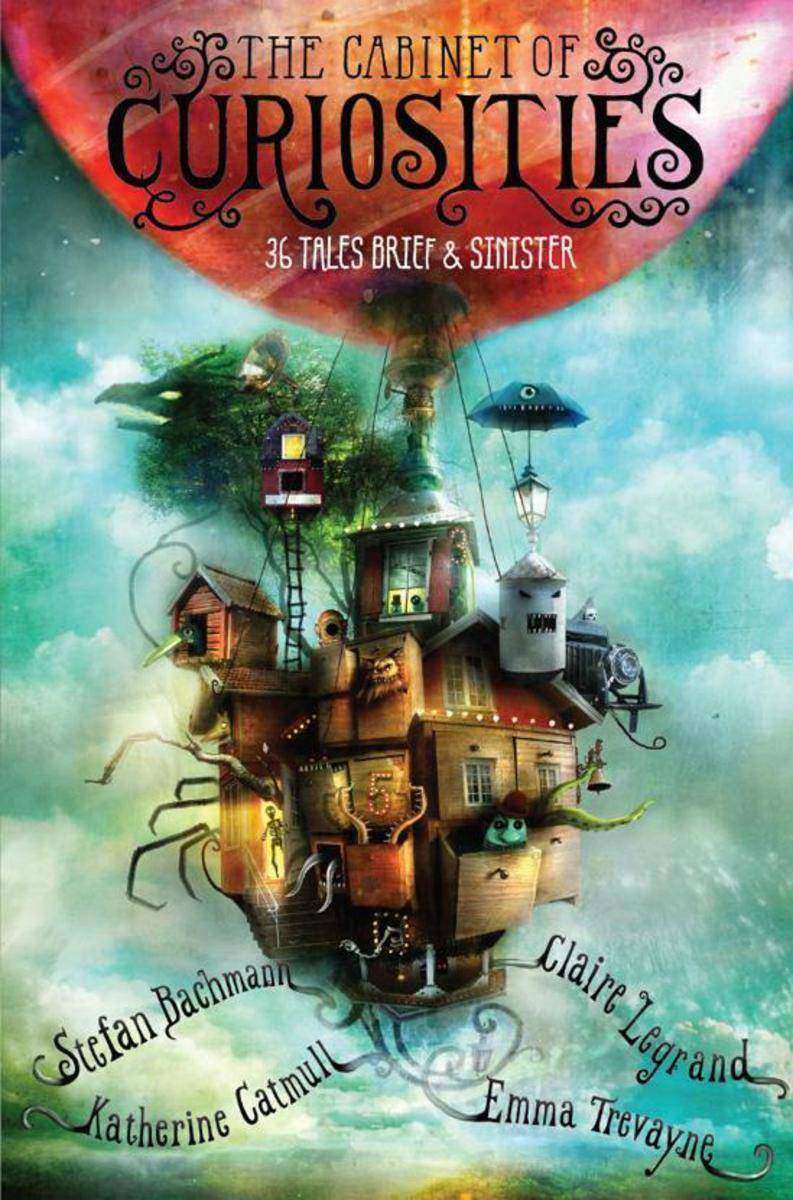
The Cabinet of Curiosities
¥38.72
A collection of thirty-six forty eerie, mysterious, intriguing, and very short stories by the acclaimed authors Stefan Bachmann, Katherine Catmull, Claire LeGrand, and Emma Trevayne. The Cabinet of Curiosities is perfect for fans of Alvin Schwartz's Scary Stories to Tell in the Dark and anyone who relishes a good creepy tale. Great for reading alone or reading aloud at camp or school!The book features an introduction and commentary by the authors and black-and-white illustrations throughout.

Advanced Penetration Testing for Highly-Secured Environments - Second Edition
¥107.90
Employ the most advanced pentesting techniques and tools to build highly-secured systems and environments About This Book Learn how to build your own pentesting lab environment to practice advanced techniques Customize your own *s, and learn methods to exploit 32-bit and 64-bit programs Explore a vast variety of stealth techniques to bypass a number of protections when penetration testing Who This Book Is For This book is for anyone who wants to improve their skills in penetration testing. As it follows a step-by-step approach, anyone from a novice to an experienced security tester can learn effective techniques to deal with highly secured environments. Whether you are brand new or a seasoned expert, this book will provide you with the skills you need to successfully create, customize, and plan an advanced penetration test. What You Will Learn A step-by-step methodology to identify and penetrate secured environments Get to know the process to test network services across enterprise architecture when defences are in place Grasp different web application testing methods and how to identify web application protections that are deployed Understand a variety of concepts to exploit software Gain proven post-exploitation techniques to exfiltrate data from the target Get to grips with various stealth techniques to remain undetected and defeat the latest defences Be the first to find out the latest methods to bypass firewalls Follow proven approaches to record and save the data from tests for analysis In Detail The defences continue to improve and become more and more common, but this book will provide you with a number or proven techniques to defeat the latest defences on the networks. The methods and techniques contained will provide you with a powerful arsenal of best practices to increase your penetration testing successes. The processes and methodology will provide you techniques that will enable you to be successful, and the step by step instructions of information gathering and intelligence will allow you to gather the required information on the targets you are testing. The exploitation and post-exploitation sections will supply you with the tools you would need to go as far as the scope of work will allow you. The challenges at the end of each chapter are designed to challenge you and provide real-world situations that will hone and perfect your penetration testing skills. You will start with a review of several well respected penetration testing methodologies, and following this you will learn a step-by-step methodology of professional security testing, including stealth, methods of evasion, and obfuscation to perform your tests and not be detected! The final challenge will allow you to create your own complex layered architecture with defences and protections in place, and provide the ultimate testing range for you to practice the methods shown throughout the book. The challenge is as close to an actual penetration test assignment as you can get! Style and approach The book follows the standard penetration testing stages from start to finish with step-by-step examples. The book thoroughly covers penetration test expectations, proper scoping and planning, as well as enumeration and foot printing




 购物车
购物车 个人中心
个人中心



